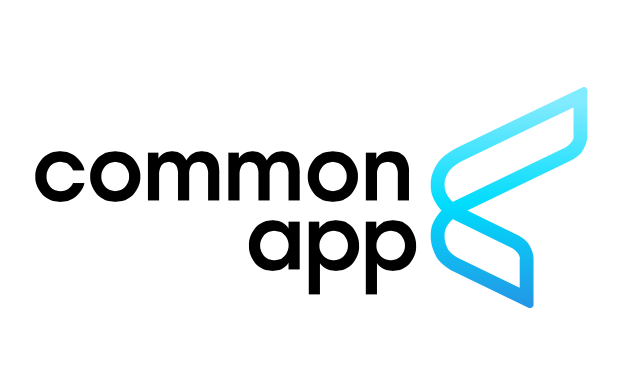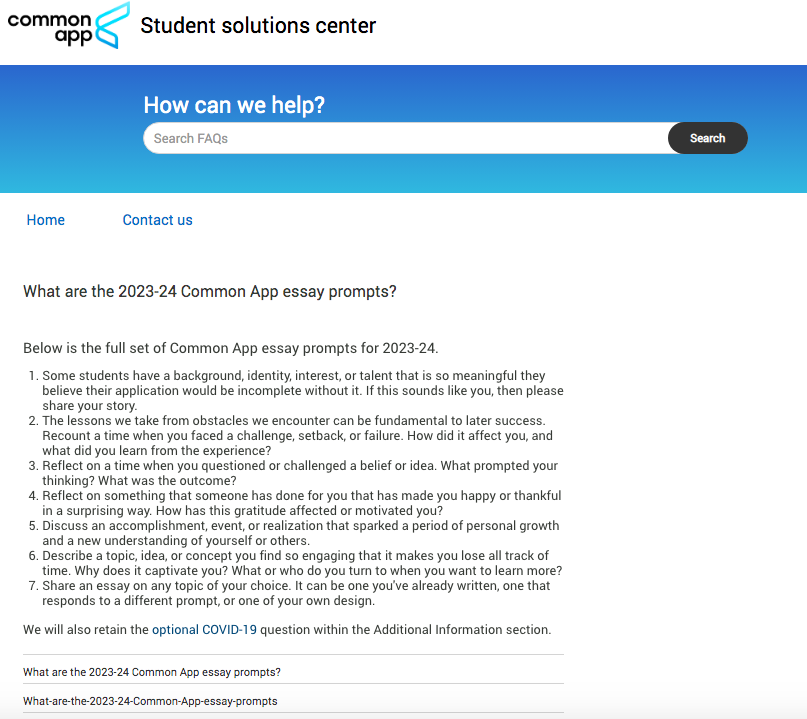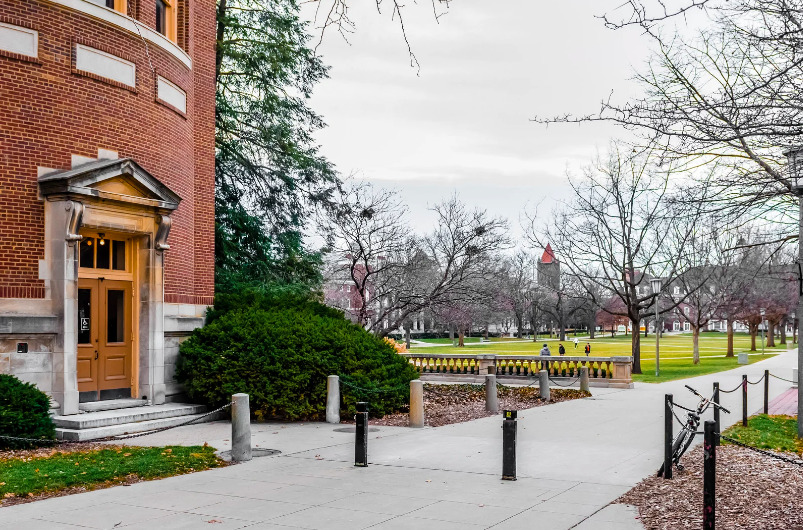 If you’re a high school student going through the college admissions process right now, you’ve probably had this thought at least once (or, let’s be honest, a dozen times):
If you’re a high school student going through the college admissions process right now, you’ve probably had this thought at least once (or, let’s be honest, a dozen times):
“This is too much.”
And you’re not wrong. The college admissions landscape is shifting so fast it can make your head spin. Test-optional policies are still in flux. AI-written essays are being debated in admission offices. Legacy admissions are being challenged. Some colleges are bringing back standardized tests, others are doubling down on holistic review. Financial aid packages seem less generous than before, and deadlines keep creeping earlier. It’s no wonder students are overwhelmed.
So first, let’s take a breath together. Deep inhale. Deep exhale.
Now let’s talk about how to actually manage the anxiety that comes with all of this. Because you can manage it. It won’t be perfect. It might still feel messy at times. But if you give yourself the time to plan, prepare, and take care of your mental well-being, you’ll not only survive this process — you’ll grow through it.
First: Acknowledge That This Is Hard
Let’s not sugarcoat it. Applying to college has always been stressful, but it’s more complicated now than it used to be.
You’re expected to juggle classes, extracurriculars, jobs, family responsibilities, friendships, and your mental health — all while trying to craft the perfect application narrative that captures “who you are” in just 650 words. That’s a tall order.
So if you’re feeling anxious, overwhelmed, or like you’re falling behind, don’t beat yourself up for it. You’re having a very normal human response to a very high-pressure situation. Give yourself permission to feel what you’re feeling.
This isn’t a weakness. It’s awareness. And awareness is the first step toward getting through it.
Understand What You Can Control (And What You Can’t)
One of the biggest sources of anxiety is trying to control things that are out of your hands. Admissions decisions? Out of your control. Whether another applicant has a Nobel Prize? Also out of your control.
But here’s what is in your control:
- How much time you dedicate to researching colleges that actually fit you
- How early you start on your personal statement and supplements
- How open you are to feedback on your essays
- How well you plan out your application timeline
- How you manage your sleep, screen time, and self-talk
Focusing on what you can control grounds you in reality. It keeps you from spiraling. You’re no longer trying to predict the unpredictable — you’re making the most of your own effort, and that’s powerful.
 Start Earlier Than You Think You Need To
Start Earlier Than You Think You Need To
There’s a saying in marathon training: “If you wait until you’re ready, you’re already behind.”
The same applies to college applications. Anxiety spikes when everything feels last-minute. But when you spread out the workload — brainstorming essays in the summer, finalizing your list early fall, getting rec letters by September — it gives your brain space to breathe.
And honestly? That’s half the battle. So if you’re reading this in spring or early summer: amazing. Start now. Even something small, like journaling what you want in a college or jotting down ideas for your personal statement, is progress.
Preparedness doesn’t mean perfection. It just means giving yourself the best shot at success by staying ahead of the chaos.
Break the Process Into Tiny Pieces
When we look at college admissions as one giant mountain, it’s terrifying. But when we turn it into smaller steps, it becomes more manageable — and less anxiety-inducing.
Instead of thinking:
- “I have to apply to 10 colleges by December and write 20 essays and get straight As this semester or I’ll never get in anywhere…”
Try this:
- “Today, I’ll draft the intro to my Common App essay.”
- “This week, I’ll research three schools I haven’t looked at yet.”
- “This month, I’ll ask my teacher for a recommendation.”
Every little win builds momentum. And every time you check something off the list, you quiet that inner voice that says you’re not doing enough.
Build a Support Team (Seriously)
You’re not meant to go through this alone. And no, that doesn’t mean you need to have it all figured out or have a private college counselor on speed dial. But you do need people.
That might be:
- A parent or guardian who helps you stay on track with deadlines
- A teacher who’s willing to give you essay feedback
- A friend who’s also applying and gets the stress you’re under
- A school counselor who knows the admissions landscape
- A mentor, neighbor, coach, or even an older sibling
Build your circle. Talk to them. Lean on them when you’re stuck or discouraged. Even just saying, “Hey, I’m feeling really anxious about college stuff right now,” can take a huge weight off your chest.
And if you feel like you don’t have that support yet? Seek it out. Start by having one honest conversation with someone you trust. You might be surprised how willing people are to show up for yollu.
Don’t Let Rankings Run Your Life
This might be controversial, but it needs to be said: chasing a school because of its ranking alone is a fast track to burnout and disappointment.
Rankings are based on weird formulas that don’t account for what you actually want. They won’t tell you whether a school is a good fit. They won’t tell you if you’ll thrive there emotionally, socially, or academically. And they certainly won’t tell you if you’ll be happy.
So ask yourself:
- What kind of environment do I want?
- What type of professors do I learn best from?
- What’s my ideal class size?
- Do I care more about prestige or belonging?
- Do I want to be close to home, or far away?
When you choose schools based on what feels right for you, not just what looks good on paper, the process becomes less stressful — and way more exciting.
Watch Your Mental Habits
Here’s something no one talks about enough: the way you think about college can either fuel your anxiety or help you manage it.
If your self-talk sounds like this:
- “If I don’t get into [dream school], I’m a failure.”
- “Everyone else has better grades than me.”
- “I’m not unique enough. My story isn’t special.”
- “I’ll never be good enough for this.”
…then it’s no wonder you feel anxious. That inner dialogue is like carrying a backpack full of bricks.
So let’s reframe:
- “College admissions is unpredictable, but I’m giving this my best effort.”
- “I have strengths that matter, even if they’re not traditional.”
- “There are hundreds of colleges where I can succeed.”
- “This doesn’t define me. It’s just one part of my story.”
Train your brain to talk to yourself like you would to a friend. Gentle. Encouraging. Realistic. Over time, this rewiring can genuinely reduce anxiety.
Have a Plan B (And C, and D)
Let’s be real. Not every outcome will go your way. And part of what makes this process so nerve-wracking is the fear of what if.
What if I don’t get in anywhere? What if I don’t get financial aid? What if everything goes wrong?
So — what’s the antidote? Have a Plan B. And a Plan C. Not because you’re giving up on your dreams, but because you’re smart enough to prepare for multiple outcomes.
Maybe that means:
- Including some financial safeties on your list
- Exploring community college-to-transfer pathways
- Looking at gap year programs or internships
- Being open to colleges you hadn’t considered before
There’s power in being flexible. And knowing that your success isn’t tied to just one outcome takes the pressure off. You’re not failing if you pivot — you’re adapting. That’s real resilience.
Take Care of Yourself (Yes, Even During Application Season)
We get it. The essays feel more important than sleep right now. But hear this: a well-rested, emotionally stable version of you will write better essays, interview more confidently, and manage setbacks more calmly.
So please:
- Get 7–8 hours of sleep a night, even during crunch time
- Eat actual meals, not just snacks and caffeine
- Move your body — walk, run, stretch, anything
- Take intentional breaks (phone down, brain off)
- Talk to someone if the stress feels like too much
You’re not a machine. You’re a human being. And the best applications come from students who are functioning like humans — not robots in panic mode.
Remember: You Are More Than Your Application
At the end of the day, your worth is not based on whether a college says yes.
You are not your GPA. You are not your SAT score. You are not your rejection letters.
You are a whole person with stories, strengths, values, and potential. The college process doesn’t define you — you define you.
So go into this season with that truth in your back pocket. Yes, do your best. Yes, aim high. But don’t lose yourself in the process. You’ve got so much more to offer than what fits on a college application.
Final Thought
If no one’s told you this today: you’re doing great. Even if you’re behind. Even if you’re confused. Even if you’re scared. You’re taking steps toward your future, and that matters.
This process is hard, but you’re not alone. Keep going. Keep asking questions. Keep being kind to yourself. And remember — preparation is your best friend. The more you plan, the more confident you’ll feel.
The future is still yours to shape.
You’ve got this.






